At the end of God of War: Ragnarok, the fate of the series was largely left open-ended. While speculation and rumors have surrounded the future, it seems likely the next God of War will see fans go to Egypt as Kratos follows in Tyr’s footsteps. With Egypt comes the Egyptian pantheon, which is full of interesting and wonderful myths. Naturally, Kratos or Atreus will find themselves at odds with the gods and goddesses of ancient Egypt. This leaves fans wondering what deities will appear in the next God of War if it takes place in Egypt.
Videos by ComicBook.com
The Egyptian pantheon is full of interesting characters that would be perfect for the next God of War. If it gets the same treatment as the Norse series, this could lead to multiple games set in Egypt. This would give Santa Monica Studio plenty of room to add and interpret Egyptian deities. For now, these are the ten Egyptian gods and goddesses we want to appear in God of War.
Ra (Sun God)
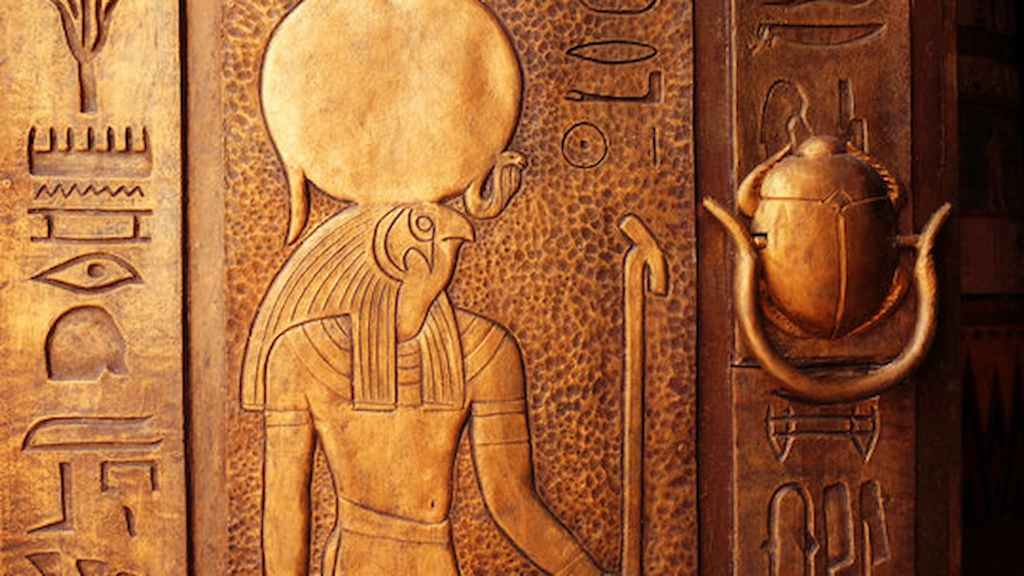
Ra is the supreme ruler of the sun and Egypt’s creator god. He should be portrayed as a paranoid tyrant rather than a benevolent deity. He views himself as the sole force preventing the universe from collapsing. Kratos could be seen as a disruptive force to everything Ra stands for. The Greek God of War would be a chaotic and destructive figure opposing Ra’s divine order. Ra’s powers should be predominantly solar-based. These could include abilities such as intense heat, fiery transformations, and solar manipulation.
The battle between Ra and Kratos could be a dynamic boss fight where the environment is ever-changing and features extreme heat and devastating solar storms. The battlefield would be unpredictable, with solar flares, beams of fire, and more making it difficult to navigate while combating Ra. The resulting fight would be chaotic and challenging for Kratos and the player.
Set (God of Chaos and Desert)
Set, the god of chaos, the desert, and storms, would be depicted as an embodiment of destruction with a changing shape. Driven solely by the pursuit of power, Set shows no regard for order and is willing to annihilate anything, even his brother Osiris, that stands in his way. In battle, he is an unpredictable force, constantly shifting forms and summoning violent sandstorms that afflict the battlefield.
RELATED: God of War Rumor Sheds Light on Next Game (And It’s Exactly What Fans Want)
During this fight, Kratos could face the challenge of a whirling obstructive desert storm. Set would attack by vanishing into the sands and reappearing to strike from any direction. Kratos would need to predict Set’s movements and determine where the chaotic god will attack from. Set would show his sadistic nature by toying with Kratos and prolonging the battle, likely increasing the God of War’s rage.
Sekhmet (Goddess of War and Pestilence)
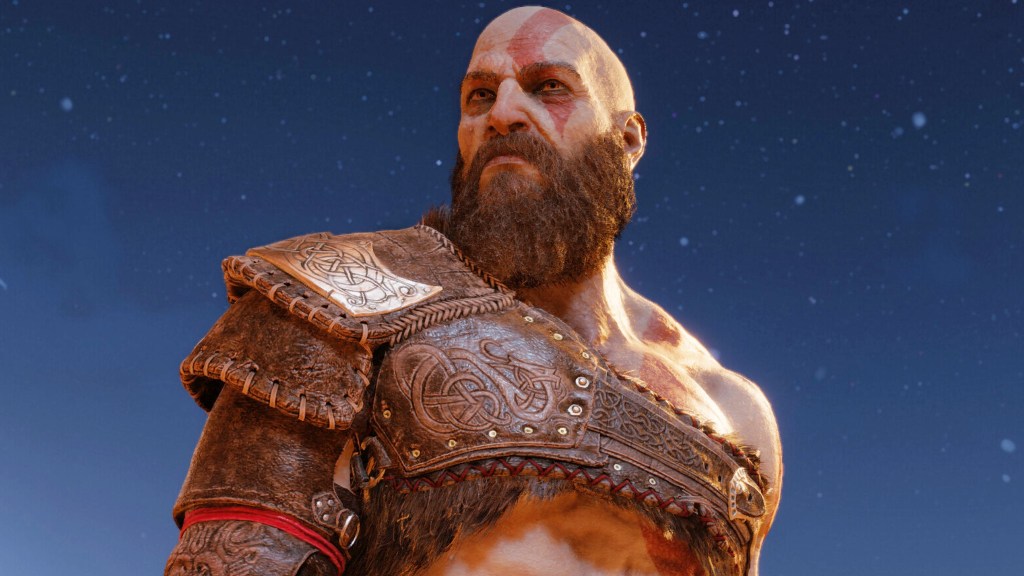
Sekhmet, the goddess of war and pestilence, represents cruelty, brutality, and bloodlust. As the embodiment of war and the destroyer of Ra’s enemies, she is driven by uncontrollable rage and an insatiable thirst for battle. In the next God of War, Sekhmet could serve as an aggressive enemy. She would attack relentlessly with a barrage of strikes, especially in her lioness form. This grants her exceptional speed and strength, allowing her to attack Kratos with devastating force using her sharp claws and teeth.
Sekhmet possesses a disease that could slowly debilitate Kratos over time in addition to her physical prowess. Sekhmet’s association with healing and medicine would also see her recovering health during the fight. The battlefield surrounding her is filled with poisonous substances, making it difficult to navigate. Sekhmet is not driven by conquest but by a desire for carnage, which makes her a dangerous and ruthless opponent.
Sobek (God of Crocodiles and the Nile)
Sobek is the god of crocodiles and the Nile. His primary aspects would be raw overwhelming power. In the upcoming God of War game, Sobek could appear as a towering, crocodile-like warrior with impenetrable scales and massive teeth. His strength and apotropaic magic make him a formidable opponent. Sobek’s powers revolve around water manipulation, devastating physical attacks, and protective abilities.
Sobek commands tidal waves to flood and control the battlefield. This allows Sobek to drag Kratos underwater for intense close-quarters combat, heightening the tension of the encounter. Sobek’s arrogance and menace are evident, giving him a similar view as God of War: Ragnarok’s Thor. He views Kratos as a fool who is weak and not fit to challenge him. A battle with Sobek would be intense, with both the crocodile god and the Greek God of War throwing powerful blows back and forth.
Anubis (God of the Afterlife)
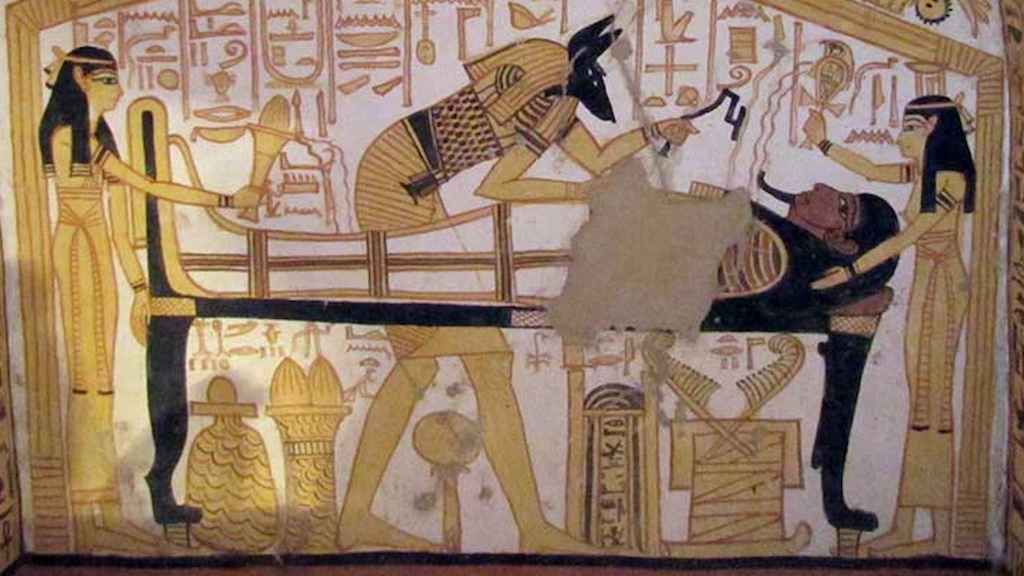
Anubis, the god of the afterlife, does not act as a traditional villain. However, Kratos’ repeated defiance of death would be seen as a violation of the natural order that Anubis represents and upholds. Unable to overlook this, Anubis and Kratos would be dragged into conflict. Anubis’s abilities are centered around controlling the dead, summoning spirits to carry out his will, and manipulating souls.
During their encounter, Anubis might weigh Kratos’s soul. This could weaken Kratos or power Anubis up. Anubis may call on the spirits of those Kratos has defeated in the past, perhaps even other gods. While Anubis is not overtly aggressive, he forces Kratos to confront his place in the world and where he belongs. This confrontation promises to be an introspective challenge for Kratos that may leave him with doubts and questions.
Thoth (God of Knowledge and Magic)
Thoth, the god of knowledge and magic, would rely on cunning to challenge Kratos. He would likely be arrogant, perhaps similar to Hermes or Heimdall in attitude, which would ultimately be Thoth’s downfall. Thoth would not challenge Kratos directly, instead preferring strategy to tip the odds in his favor. He would plan for any outcome and attempt to manipulate Kratos into traps to weaken him.
Battling Thoth will be difficult, as the god will have foreseen and predicted Kratos’ every move. Thoth could alter reality with hieroglyphic spells to create unwinnable situations for Kratos. He would see the Greek God of War as nothing but a brute, probably underestimating him and thus failing to see how dangerous Kratos is.
RELATED: New Tease Leaves God of War Fans Surprised
Neith (Goddess of War and Weaving)
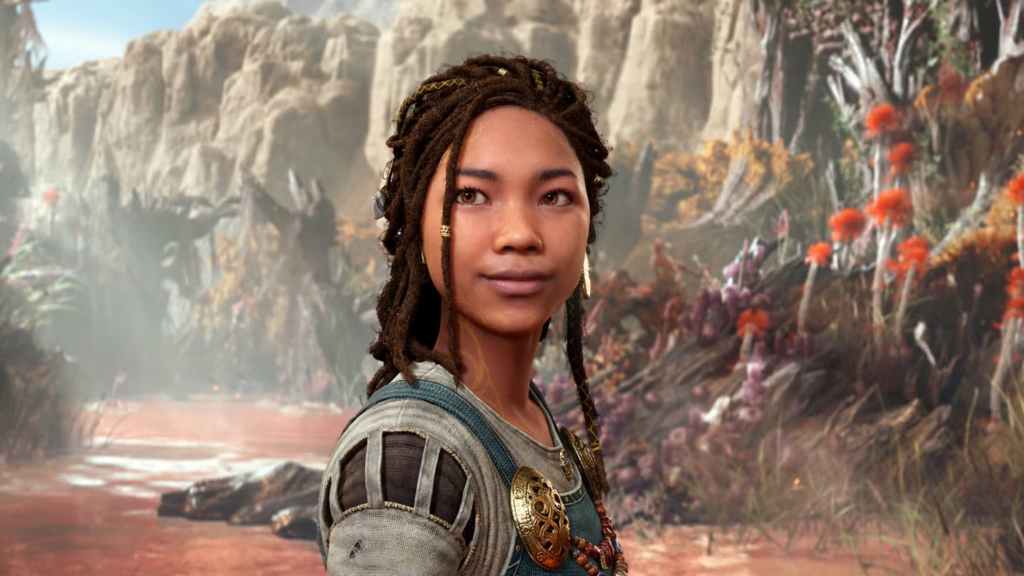
Neith is a goddess of war but also has titles such as Opener of the Ways or Opener of Paths. She takes on a fiercely protective and motherly figure, similar to Freya. In addition to this, Neith is often associated as the patron goddess of weavers, particularly with the wrappings of mummies. Depending on Kratos’ decisions, she could be a powerful ally or a deadly enemy.
Neith represents the strategic side of war, planning her moves and issuing commands. But this does not mean she can’t fight her own battles. Two crossed bows are used as her symbol, and she could be a skilled archer in combat. Neith could combine this with powerful weavings that act as spells. She could even construct and summon mummies to attack Kratos directly while she keeps her distance and peppers the God of War with arrows and spells.
Apophis (God of Chaos and Destruction)
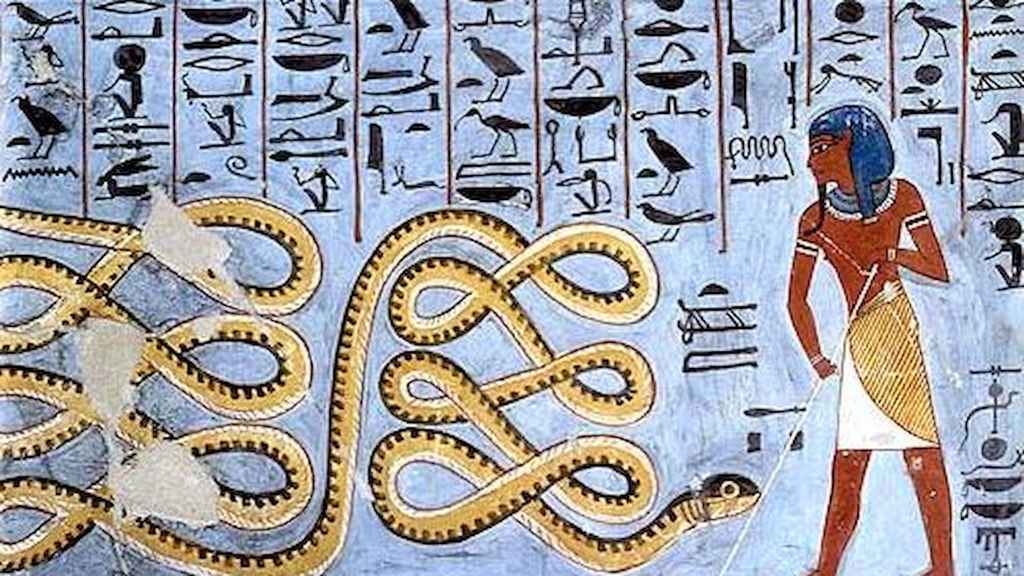
Apophis is the opposite of the Supreme God Ra, representing chaos and darkness. This serpent creature craves nothing but destruction and the complete annihilation of the world. Kratos may not be Apophis’ enemy, but he will certainly get caught up in Apophis’ path. The Serpent of the Nile would be a massive foe, perhaps not as big as the Midgar Serpent, but his sheer size would make the battlefield engaging.
A fight with Apophis would be for the fate of the world and would take all of Kratos’ strength. Losing to Apophis means the end of everything, so Kratos may even team up with other Egyptian gods to fight the serpent. Apophis would use his massive serpentine body to constrict Kratos and strike him with venom. A single bite would prove deadly, meaning Kratos must be extremely careful.
Taweret (Goddess of Protection and Childbirth)
Taweret is a lesser-known goddess, but she represents protection and childbirth. She is typically depicted as a bipedal hippopotamus with feminine and feline features. She would be fiercely protective rather than a gentle nurturing figure one might expect. Taweret would be immense and possess great strength, even having different attributes based on the various animal parts she has.
Taweret would likely fight directly, using her strength to subdue Kratos. Hippos are known for having immense biting strength, so Taweret would likely be able to severely damage the God of War with her bite. She would be like a wall of muscle that would wear Kratos down overtime until she could deliver a fatal blow. Her sense of justice and desire to protect others would drive her to see Kratos as a threat: one that must be eliminated.
Montu (God of War)
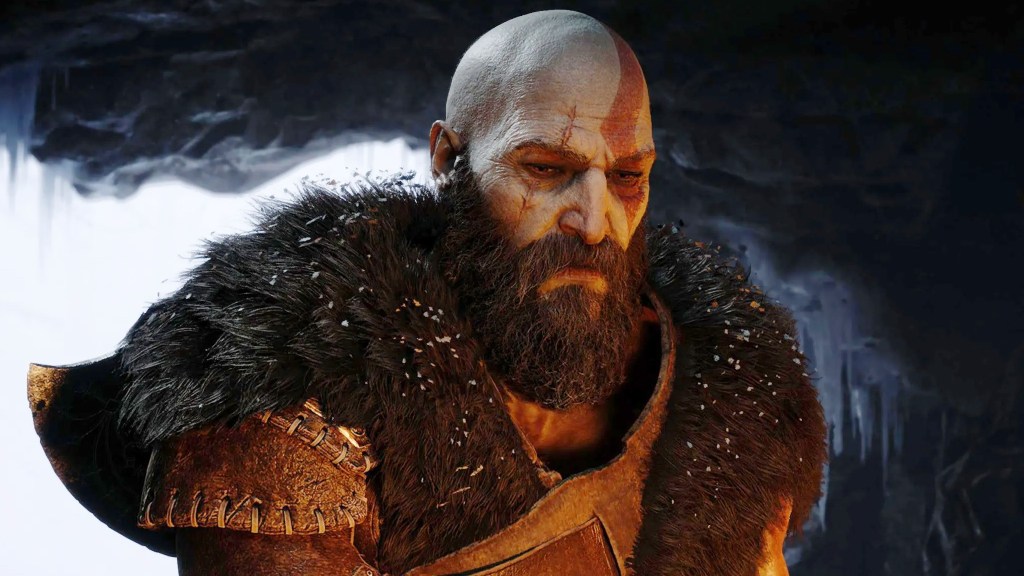
Montu is another god of war, but unlike Neith, this falcon-headed god represents the conquering spirit of pharaohs. Montu would be similar to Sobek in physical prowess but have more speed and agility. He would attack aggressively and try to wear Kratos out by striking from different angles, always keeping the God of War on his toes. Montu also has an inspiring presence, which would likely make his followers willing to stand beside him in combat against Kratos.
A fight against Montu would be a test of endurance, and the battlefield would reflect this. Montu’s followers would attack Kratos, wearing him down before Montu darts in when an opening appears. He would likely retreat before Kratos could strike him, forcing the Greek warrior to chase him. The thrill of battle would fill Montu, and he would be eager to test himself against Kratos. This may lead to Montu prolonging the battle or retreating to learn Kratos’ attacks and strategies before a final confrontation.
The Egyptian pantheon is full of deities, so narrowing down this list took some work. While some notable names were left off the list, such as Horus, Osiris, and Isis, these gods and goddesses could appear in sequels to the next series. Some Egyptian gods would oppose and fight Kratos, while others would surely help him in his journey.








